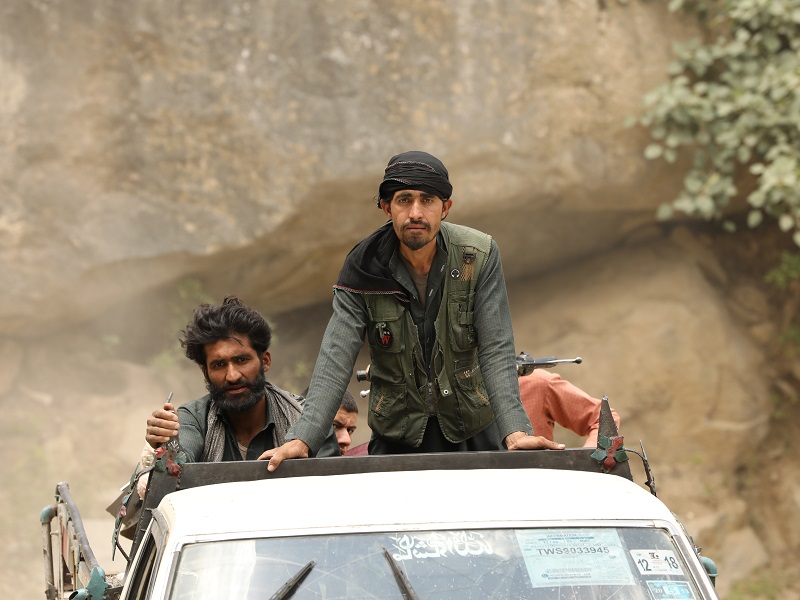
Remembering ISIS’s Rise, Regional Christians Express Concern
08/16/2021 Washington D.C. (International Christian Concern) – International Christian Concern (ICC) has learned that the fall of Kabul, Afghanistan, on August 15, 2021, has sparked a wave of new religious freedom concerns across the Middle East. Numerous terrorist groups, many of which are supported by the Republic of Turkey, publicly commented that the Taliban’s conquest of Afghanistan’s capital inspires hope for their own regional ambitions. Since 2014 in particular, those regional ambitions have largely been defined by committing genocide against local religious minorities.
Many within the region are comparing the rapid fall of Kabul with the fall of Mosul to ISIS in 2014. Those terrorists involved in the fall of Mosul were quick to congratulate the Taliban. For example, Abu Maria al-Qahtani, a former Mosul policeman and former commander of Syria’s Jahbat al-Nusra, reportedly said, “The victory of the Taliban is a victory for the Muslims, a victory for the Sunnis, a victory for all the oppressed.”
Many Iraqi Christians were quick to voice their own fears that, given this history and the current political climate, their own country is not far behind Afghanistan in terms of a major security crisis. For example, one Iraqi journalist tweeted, “If a similar takeover of state happens in Iraq, it won’t be ISIS. It’s the PMF (Popular Mobilization Forces), the IRGC-backed (Iranian-backed) groups in particular, that will run down the army and state security apparatus. They’re taking notes from the Taliban right now.”
Meanwhile in Syria, several mosques in Afrin and Idlib celebrated the victory of the Taliban over Kabul by reportedly handing out sweets. Turkey was actively recruiting terrorists within Syria for deployment into Afghanistan by potentially integrating them into the country’s only defense contractor, SADAT. Recruitment tactics often use the language of targeting Christians. The success of the Taliban, coupled with the promise of employment legitimization, further gives the appearance of validating extremist activity inside Syria.
Turkey’s use of mercenaries has effectively turned them into the main regional superpower, giving them significant influence within multiple countries. President Erdogan was actively conducting outreach to the Taliban, saying, “Turkey has nothing that contradicts their beliefs.” This past Wednesday, he invited the Taliban to Turkey, saying, “Our relevant institutions are working on it, including talks with the Taliban, and I may also receive the leader of the Taliban.”
Turkey’s embrace and integration of terrorist organizations within its own platforms are directly tied to the worsening of religious freedom conditions within the region. Turkey’s MHP party, which has a political alliance with the ruling government and is connected to the extremist Grey Wolf movement, shared in a statement, “One hundred years of history, cultural and religious ties between Turkey and Afghanistan are the excuse and support for our presence in Kabul… Afghanistan is a Muslim country.”
This language mirrors similar rhetoric used by Turkish authorities to justify religious freedom violations across the Middle East. It is often paired with anti-refugee language. As the world’s largest receiver of refugees, many Christians fleeing persecution travel to Turkey. Turkey’s current anti-refugee language in response to the Afghan crisis further complicates the situation for Middle Eastern Christians needing relocation assistance.
Claire Evans, ICC’s Regional Manager, said, “The atmosphere throughout the Middle East region has changed with the fall of Kabul to the Taliban. The Middle East had just entered the recovery stages following the defeat of ISIS, an ideology predicated on the genocide of religious minorities. Now those same terrorists feel empowered by the Taliban’s resurrection and success in Kabul. When ISIS captured new territory, Middle Eastern governments largely condemned it. Now, particularly in the case of Turkey, we see similar activities openly legitimized. This is potentially a significant turning point for religious freedom across the Middle East. We are watching the Middle Eastern response closely and with great concern.”
Become a Christian News Network Supporter...


